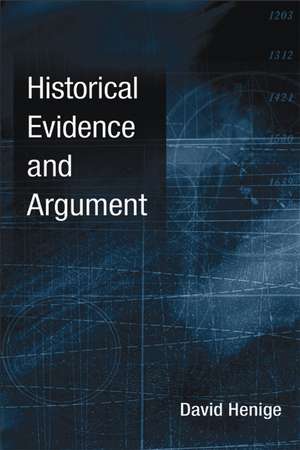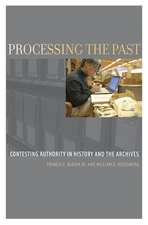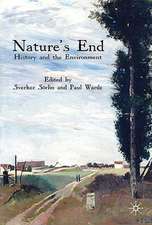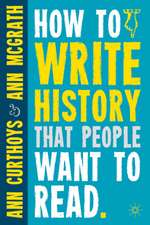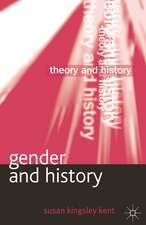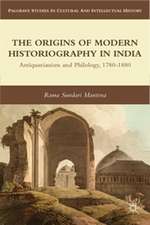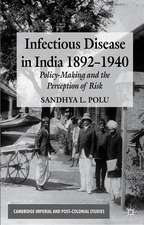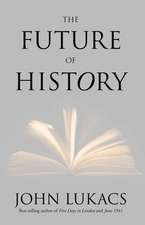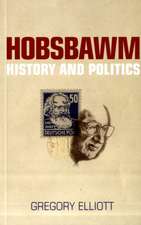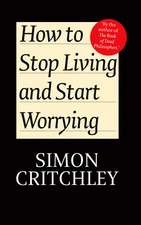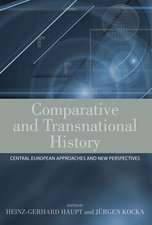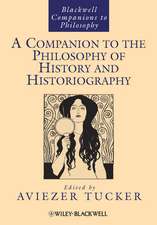Historical Evidence and Argument
Autor David Henigeen Limba Engleză Hardback – 18 sep 2005
Historians know about the past because they examine the evidence. But what exactly is “evidence,” how do historians know what it means—and how can we trust them to get it right? Historian David Henige tackles such questions of historical reliability head-on in his skeptical, unsparing, and acerbically witty Historical Evidence and Argument. “Systematic doubt” is his watchword, and he practices what he preaches through a variety of insightful assessments of historical controversies—for example, over the dating of artifacts and the textual analysis of translated documents. Skepticism, Henige contends, forces us to recognize the limits of our knowledge, but is also a positive force that stimulates new scholarship to counter it.
Preț: 186.80 lei
Nou
Puncte Express: 280
Preț estimativ în valută:
35.74€ • 37.40$ • 29.69£
35.74€ • 37.40$ • 29.69£
Carte tipărită la comandă
Livrare economică 02-16 aprilie
Preluare comenzi: 021 569.72.76
Specificații
ISBN-13: 9780299214104
ISBN-10: 0299214109
Pagini: 340
Dimensiuni: 152 x 229 x 23 mm
Greutate: 0.65 kg
Ediția:1
Editura: University of Wisconsin Press
Colecția University of Wisconsin Press
ISBN-10: 0299214109
Pagini: 340
Dimensiuni: 152 x 229 x 23 mm
Greutate: 0.65 kg
Ediția:1
Editura: University of Wisconsin Press
Colecția University of Wisconsin Press
Recenzii
“Henige takes the study of historical methodology to a new level.”—David C. Conrad, State University of New York–Oswego
“There is no other book like this one in its breadth and scope. . . . A deftly acerbic series of sketches of the many ways that historians misread and misuse evidence.”—Eric Gable, Mary Washington College
“There is no other book like this one in its breadth and scope. . . . A deftly acerbic series of sketches of the many ways that historians misread and misuse evidence.”—Eric Gable, Mary Washington College
Notă biografică
David Henige is the African studies bibliographer at the University of Wisconsin–Madison and editor of several national series on African history.
Descriere
Historians know about the past because they examine the evidence. But what exactly is “evidence,” how do historians know what it means—and how can we trust them to get it right? Historian David Henige tackles such questions of historical reliability head-on in his skeptical, unsparing, and acerbically witty Historical Evidence and Argument. “Systematic doubt” is his watchword, and he practices what he preaches through a variety of insightful assessments of historical controversies—for example, over the dating of artifacts and the textual analysis of translated documents. Skepticism, Henige contends, forces us to recognize the limits of our knowledge, but is also a positive force that stimulates new scholarship to counter it.
